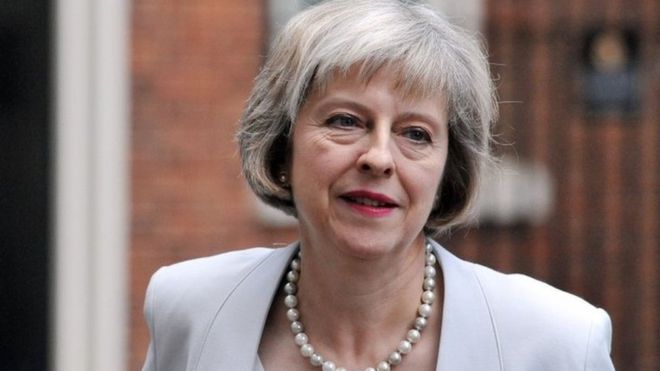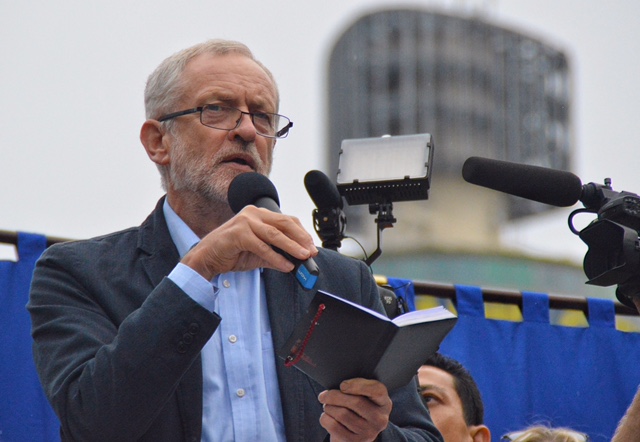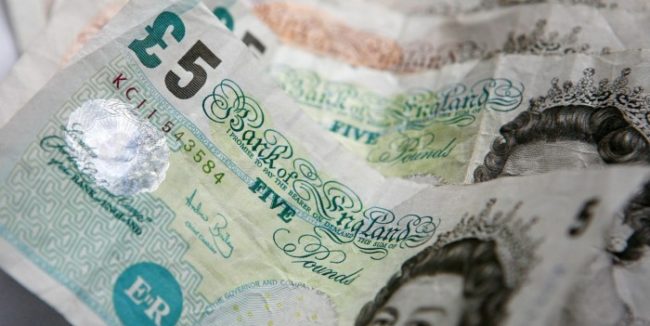Seven weeks out from a General Election and the Conservative poll lead over Labour is so big that the Prime Minister can afford to ignore one of the biggest issues facing Britain, writes Tony McDonough

There’s only two things that will usually stop a Government from doing something – politics or money.
Politicians hate the appearance of doing nothing even when sometimes that is the most sensible course.
Right now, Prime Minister Theresa May has the luxury of being able to choose. There is no one to tell her otherwise and that is terribly unhealthy for those of us who care about democratic accountability.
Big lead
Six weeks out from a General Election one poll has the Conservatives 24 points ahead of Labour.
The Tories comfortably defeated Labour in 2015 and the percentage gap in the election was less than seven points so we can only shudder if the polls are anywhere near correct this time around.
Now some people will say ‘but the polls have been getting it wrong last couple of years’ … and so they have – but never by 24 points.
In fact, the picture could be even more dire for Labour than the polls suggest.
In the 2015 General Election, the EU Referendum and the US Presidential Election the pollsters consistently underestimated the vote from the right and overestimated the vote from the left.
If that trend continues then Labour leader Jeremy Corbyn will have some sleepless nights over the next few weeks.
Illusion of hope
Corbyn still enjoys huge adoration among his core supporters – at times verging on a childlike awe.
I attended a rally at St George’s Plateau last summer during Corbyn’s second party election campaign and it was a sight to behold.
It felt like a second coming – they lapped up his every word. Had there been rafters they’d have been hanging from them. Even the lions on their plinths couldn’t fail to be moved.
Every person there would have felt they were part of a genuine wave of social change. Of course it was, and is, illusory. Corbyn’s allure, such as it is, has failed to excite the wider population.

His latest policy wheeze is the promise of four extra public holidays a year.
For a country already lagging behind competitors such as France and Germany in terms of productivity it’s a policy that smacks of economic incompetence.
But do you know what? It really doesn’t matter. Corbyn could pledge to nationalise the moon and make chicken soup compulsory every Tuesday – he’s never, ever going to get the chance to implement a single policy.
Lazarus needed
In 2015 the Conservatives won the election with 11.3m votes, a 36.9% share, while Labour was 2m behind on 9.3m, equating to 30.4%. Labour would need a significant bump in current polling just to stand still.
Actually winning would require a Lazarus-style recovery in Scotland and an unprecedented surge in key middle England marginals.
Take Milton Keynes, one constituency that New Labour took in 1997 with a thumping majority of 10,292 and a 53.8% share of the vote. In 2015 the Tories won it with a majority of 8,762 and a 46.8% share of the vote.
The size of the task is eye-watering. Labour’s prospects are hopeless – the party is lost in space.
Brexit focus
So the only party whose potential policies are worth looking at in any detail are the Conservatives, for they will be forming the next Government.
Much of the focus will be on Theresa’s May’s approach to the forthcoming Brexit negotiations – and understandably so. It’s huge.
However, there is something equally as big and foreboding that casts a shadow over the UK for years to come – the alarming state of our public finances.
In January the Office for Budget Responsibility (OBR) revealed its latest fiscal sustainability projections.
It paints a bleak picture – there is a fiscal ogre coming down the mountain.
The OBR projects Britain’s ageing population will push up total public spending from 35.8% of GDP in 2021-22 to 43.8% of GDP by 2066-67, an overall increase of 8% of GDP and equivalent to £156bn in today’s terms.

Over the same period spending on the NHS will rise from 6.9% of GDP to 12.6%, state pensions from 5% of GDP to 7.1% and social care almost doubling from 1.1% of GDP to 2%.
It forecasts that public sector net debt will fall from more than 90% of GDP to below 80% for much of the 2020s but then will rise steadily, reaching a whopping 234% of GDP in 2066-67.
This may all seem a long way off but in order to get things under control for the future, we need to act now. One analyst has predicted that over the course of the next five-year Parliament we would need to either raise taxes or cut public spending to the tune of £100bn.
Try to get a straight answer on that out of either Theresa May or Jeremy Corbyn over the next seven weeks.
No opposition
This issue should be front and centre of the General Election campaign. It needs to be addressed as a matter of urgency by Mrs May – the current and next Prime Minister.
But she almost certainly won’t because she doesn’t have to – there’s no one who can make her. Politics not economics will dominate this campaign because all political opposition and dissent is neutered for the foreseeable future.
The Labour Party’s reckless act of self-indulgence in electing Jeremy Corbyn as its leader – not once, but twice – saw to that.

